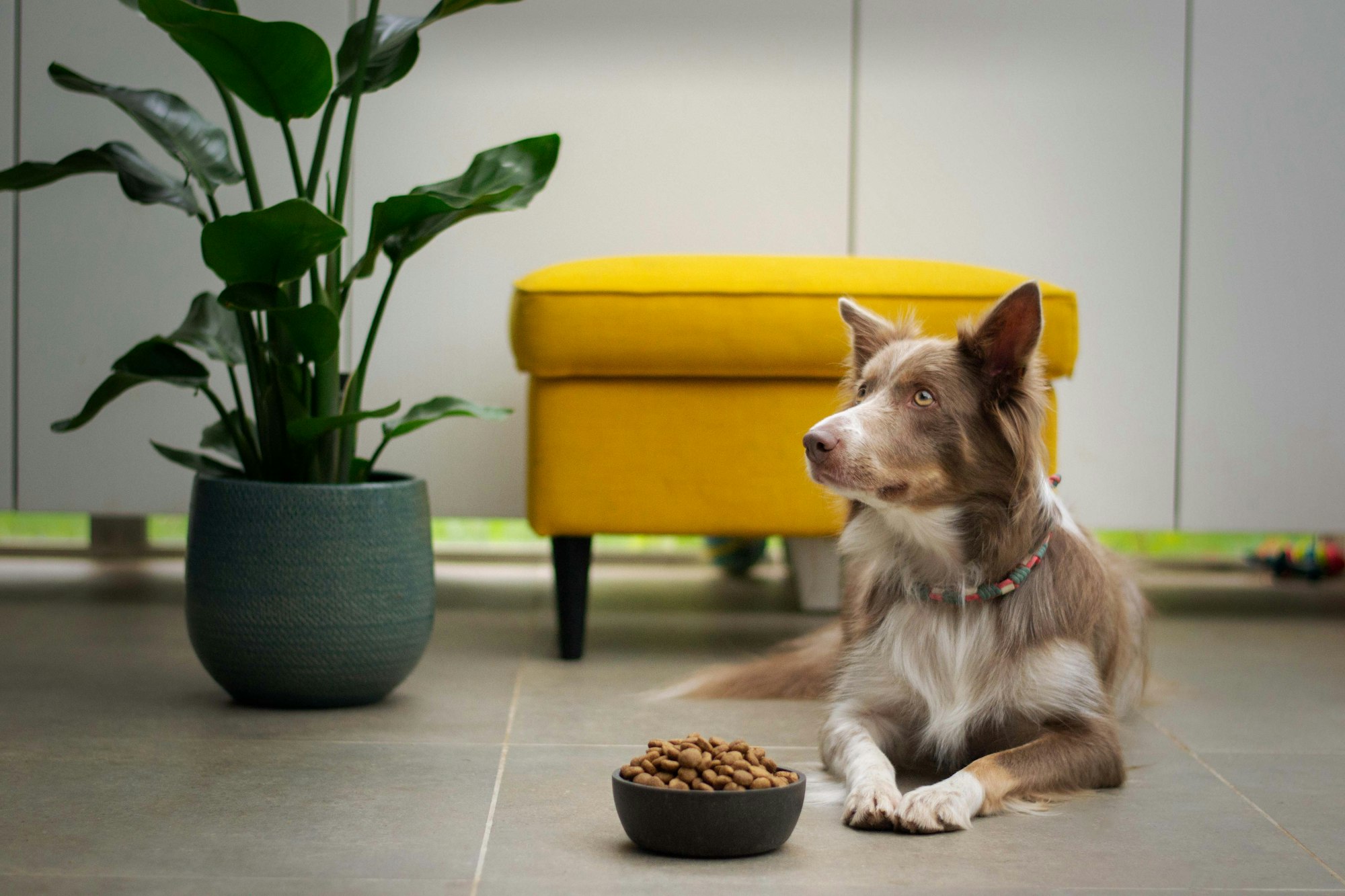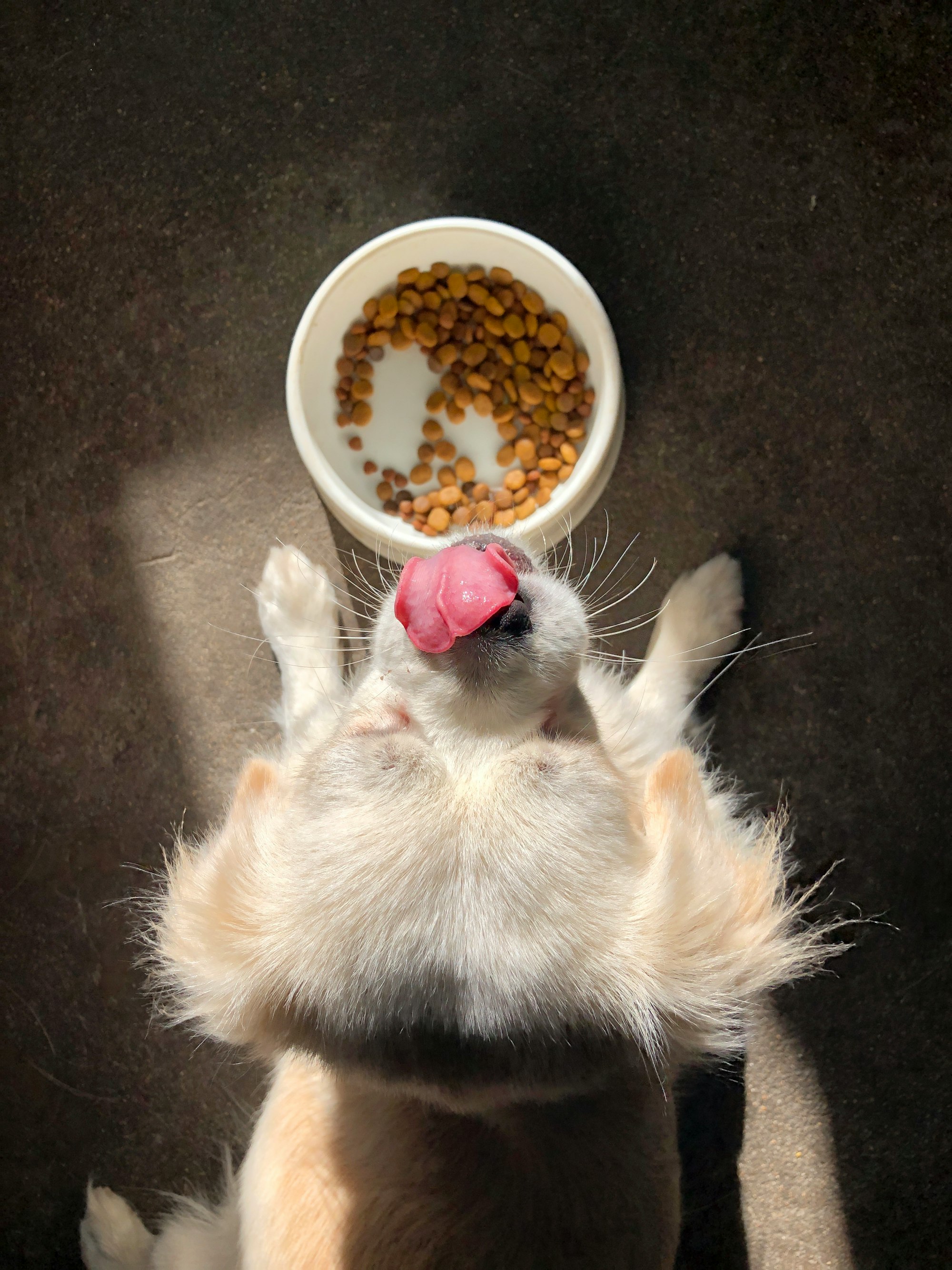As dogs age, their nutritional needs change, and it becomes essential to adapt their diets to keep them healthy and happy. This guide explores everything from nutritional requirements to specific food choices for aging dogs. Let's dive into a tale that every pet parent can relate to.
Understanding the Nutritional Needs of Senior Dogs
Senior dogs have unique nutritional needs compared to their younger counterparts. It's not just about filling the bowl with kibble anymore.
The Story of Bella
Take Bella, a sprightly Golden Retriever who, at 12 years old, began to slow down. Her owner, Susan, noticed that Bella's energy levels were decreasing, and she was putting on a little weight. She decided to consult a veterinarian, who emphasized the importance of nutrition in Bella's healthy aging process.
Tailoring a Diet for Aging Dogs
The vet explained that a diet tailored for aging dogs could make a world of difference. That includes lower fat content, higher fiber, and nutrients specifically aimed at supporting joint health.
Including the Right Ingredients
Foods rich in antioxidants, omega-3 fatty acids, and high-quality proteins can support cognitive function, skin health, and muscle retention in older dogs. Think of these ingredients as the "superheroes" of a senior dog's diet.
Real-Life Examples of Best Food Options
Now, let's consider some specific food options that can promote healthy aging in dogs.
Wet Food vs. Dry Food
When it comes to selecting wet food or dry food, it often boils down to personal preference and the specific needs of the dog. For example, wet food may be easier for a senior dog with dental issues to chew.
Homemade Diets
Some dog owners, like John, prefer to prepare homemade meals for their pets. John's 14-year-old Labrador, Max, struggled with commercial dog food. After much research, John created a balanced diet of cooked chicken, rice, vegetables, and supplements to meet Max's needs.
Age-Appropriate Supplements
While quality food is at the core of healthy aging, supplements can fill in the nutritional gaps.
Glucosamine and Chondroitin
These are famous names in the world of dog joint health. Older dogs like Bella can greatly benefit from these supplements. They work to lubricate and cushion the joints, making those twilight years more comfortable.

Specialized Senior Dog Foods
Manufacturers are increasingly recognizing the importance of senior dog nutrition, creating specially formulated foods.
Science-Based Options
Brands like Hill's Science Diet offer formulations designed specifically for aging dogs, with balanced nutrients and easily digestible ingredients.
Grain-Free Alternatives
If your senior dog has a sensitive stomach, grain-free options might be the way to go. These formulations are typically easier to digest, helping with issues like gas and bloating.
Understanding Senior Dog Obesity
It's a sad but common sight: aging dogs gaining excess weight. This is often a result of decreased activity levels coupled with a diet that doesn't change to match their slowing metabolism.
The Tale of Oliver
Meet Oliver, a 10-year-old Beagle who loves to eat. His owner, Lisa, noticed that Oliver was putting on weight. She made a vital change to his diet, focusing on lower-calorie foods and portion control, and Oliver returned to a healthy weight.
Water is Key
Hydration is often overlooked in a senior dog's diet but is just as important as choosing the right food. Older dogs may need more water, especially if they are on a predominantly dry food diet. Make sure fresh, clean water is always available.
Monitoring Your Senior Dog's Diet: A Daily Task
Keeping an eye on your senior dog's diet and how they react to it becomes a daily task. It's not just about what's in the bowl but how they eat it, how they digest it, and how it affects their overall wellbeing.
Regular Check-Ins
Routine vet visits and monitoring at home will help ensure that your senior dog's diet continues to meet their changing needs. Regular check-ins with professionals provide the peace of mind that you're doing everything right for your furry family member.
The Connection Between Exercise and Nutrition
Understanding the relationship between diet and exercise is crucial in managing the overall wellness of senior dogs.

A Balanced Approach
Regular, gentle exercise, along with proper nutrition, helps maintain a healthy weight and good muscle tone. It's about finding the perfect balance that suits your senior dog's abilities and needs.
Exercise Ideas for Older Dogs
Short, daily walks, gentle play, or even canine aquatic therapy can do wonders. These activities paired with the right diet make for a healthy aging process.
Emotional Health and Nutrition
Just as crucial as physical health, the emotional well-being of an aging dog cannot be ignored. The right diet can play a vital role here, too.
Comfort Food
Sometimes, senior dogs may need softer food or familiar tastes to comfort them, especially if they are experiencing cognitive decline or anxiety.
Cognitive Health in Senior Dogs
Dementia and cognitive decline are real concerns for older dogs. Specific nutrients can support cognitive function.
Antioxidants and Brain Health
Foods rich in antioxidants like Vitamin E and C can have a positive effect on your dog's brain function.
Dental Health and Diet
Dental health tends to decline as dogs age. The choice of food and how it's served can make a difference.
Kibble and Dental Health
Certain types of dry food are designed to support dental health by reducing plaque and tartar buildup.
Tailored Care
What worked for Bella, Oliver, or Max may not be suitable for your furry friend. Every dog is unique, and their care must be customized.
Individual Health Assessments
A health assessment that considers breed, health history, weight, and other individual factors will guide the best food choices.
Lifelong Learning
Keeping yourself informed about the latest in senior dog care, including diet and nutrition, helps you make the best decisions.
Attend Seminars, Read, and Research
Consider attending pet care seminars, reading books on senior dog care, and researching online for the latest information.
The Comfort Factor: Making Home a Haven
An aging dog's comfort goes hand-in-hand with nutrition. Making small adjustments to their living environment can complement their dietary needs.
Soft Bedding and Accessible Bowls
Soft beds and easy-to-reach food and water bowls help older dogs with arthritis or mobility issues.
Food Allergies and Sensitivities in Senior Dogs
As dogs age, they may develop sensitivities or allergies to certain foods. Understanding this aspect can be vital.
Recognizing the Signs
Skin irritations, digestive problems, or even behavioral changes could signal a food allergy. Consulting a vet can help you pinpoint the issue and adapt their diet accordingly.

The Art of Mealtime
Mealtime should be a joy for senior dogs. Enhancing their eating experience is an art in itself.
Smaller, More Frequent Meals
Older dogs may benefit from eating smaller, more frequent meals, easing digestion and keeping energy levels steady.
Engaging Their Senses
Warming up their food or adding broths can engage their sense of smell and taste, making mealtime more appealing.
The Right Tools for Grooming
Grooming is a part of general health and wellness, and it requires attention. Dog Shampoos for Sensitive & Itchy skin can be a boon for senior dogs, adding a luxurious touch to their grooming routine.
The Human Connection
Your emotional connection and understanding of your senior dog's needs can be the most crucial aspect of their care.
Quality Time and Attention
Spending quality time, gentle play, and even talking to your dog fosters a sense of security and happiness.
Tech-Savvy Pet Care
In today's world, technology can be a part of pet care, too. GPS Dog Collars are not just trendy gadgets but essential tools that can provide peace of mind.
In the era of smart technology, FI dog collars stand out as a prime example of how technology can aid in caring for senior dogs. These collars provide numerous features that align with the unique needs of aging pets.
FI Dog Collars and GPS Tracking
Remember when we discussed GPS Dog Collars? FI takes this technology a step further. For senior dogs, who might be prone to wandering due to cognitive decline, the GPS feature in FI dog collars can be a real lifesaver. It offers real-time tracking, so you always know where your furry friend is.
Health Monitoring
FI dog collars aren't just about location tracking; they also provide insightful health monitoring. This feature can be especially valuable for older dogs, whose health needs careful observation. From tracking their sleep patterns to monitoring daily activity levels, these collars give you a comprehensive view of your senior dog's well-being.

Integration with Diet and Exercise
By tracking your senior dog's activity levels, FI dog collars can help you tailor their exercise routines and diet. The insights provided by the collar can guide you in determining how much food and what kind of physical activities are suitable for your aging pet.
Connectivity and Ease of Use
The FI dog collar connects to a user-friendly app on your phone, providing all the necessary information right at your fingertips. For senior dog owners who need to be constantly attuned to their pet's needs, this can be a convenient and reassuring feature.
Emergency Notifications
For those moments when every second counts, FI dog collars offer emergency alert features. If your senior dog leaves a designated safe area, you'll be notified immediately, allowing for quick action.
Conclusion:
We've explored the intricate layers of care required for our senior canine companions. From understanding dietary needs to integrating technology like FI dog collars, every aspect matters.
The embrace of specialized shampoos, mindful selection of toys like Non Squeakty Dog Toys, and even considering Electric fence for dogs, all contribute to an enriched, safe, and joyful life for our aging friends.
By adopting a holistic approach that marries nutrition, technology, lifestyle, and love, we honor the bond with our loyal companions, ensuring their golden years are truly golden.
FAQs:
Q: What are the best food options for senior dogs?
A: The best food options for senior dogs include specialized senior dog formulas with balanced nutrients, high-quality protein, healthy fats, and essential vitamins and minerals. Consulting with a veterinarian to tailor a diet to your dog's specific needs is highly recommended.
Q: How do FI dog collars contribute to senior dog care?
A: FI dog collars provide real-time GPS tracking and health monitoring, allowing you to keep track of your senior dog's location and well-being. These insights can guide diet, exercise routines, and provide emergency alerts, offering a comprehensive view of your senior dog's daily life.
Q: Can I use specific shampoos for my senior dog's sensitive skin?
A: Yes, using specialized Dog Shampoos for Sensitive & Itchy skin is beneficial for senior dogs. They contain gentle ingredients that soothe and nourish the skin without causing irritation.
Q: What are some safe toys for senior dogs?
A: Non Squeakty Dog Toys and No Stuffing Dog Toys are excellent choices for senior dogs. They provide entertainment without unnecessary noise or potential choking hazards.
Q: How can technology, like GPS Dog Collars, aid in senior dog care?
A: GPS Dog Collars, such as FI dog collars, offer location tracking and health monitoring, helping you stay connected with your senior dog's needs. They provide convenience, reassurance, and vital insights into your dog's well-being.
Q: How should I adjust my senior dog's exercise routine?
A: Senior dogs benefit from regular, gentle exercise tailored to their abilities and needs. Short walks, soft play, or even aquatic therapy can be suitable. Always consult with your vet to determine the best routine.
Q: Are electric fences suitable for senior dogs?
A: An Electric fence for dogs can be used for senior dogs, but it should be implemented with consideration for their specific health and temperament. Consulting with a professional trainer or veterinarian to determine if it's suitable for your dog is essential.
Q: How can I make mealtime enjoyable for my senior dog?
A: Making mealtime enjoyable involves serving smaller, frequent meals, warming up their food, adding tasty broths, and using accessible bowls. Engaging their senses and providing comfort at mealtime can make a significant difference.